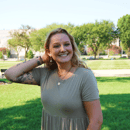Health insurance, and insurance in general, is confusing and complex, especially for young people entering the workforce. 27 million Americans remain uninsured and the price of healthcare has skyrocketed. Private health insurance premiums can be very expensive, making individual or familial coverage unaffordable and unattainable.
There are so many nuanced versions of health insurance that low-income families, young people, and jobs that do not provide coverage, create cracks that so many people slip through. These stories transcend politics and create an immediate need for affordable plans.
To put young people in perspective, if you’re under the age of 26, you can stay on your parent’s plan. That’s fantastic for students and young Americans that have parents with insurance plans. But what if your parents don’t have a plan and your premiums are too high? These are the cracks as mentioned before.
From the age of about 15-18, I didn’t have health insurance at all. This means my parents paid out of pocket for doctor’s visits and dentist visits and eye exams and my glasses and really anything related to health insurance at all. Those exorbitant costs mean I didn’t go very often. Going to my pediatrician for anything outside of a check-up was a no-go because the out of pocket costs was too high.
Once I started my freshman year at American University, I quickly learned we were required to have health insurance or fill out a waiver form. I didn’t have any outside coverage so I was required to enroll in AU’s health plan. The annual premium is $1,890 is automatically charged to your student account. I don’t have $1,890 to spend on a health plan, so it is covered by a student loan. This means I’m paying $1,890 for a health insurance plan that doesn’t cover many medical expenses PLUS interest from my student loan.
While I am privileged to have some structures in place to support me in case of an emergency, the looming threat of a medical emergency or even the high costs of routine procedures still hang overhead; waiting to drop the high-cost bomb of health care.


